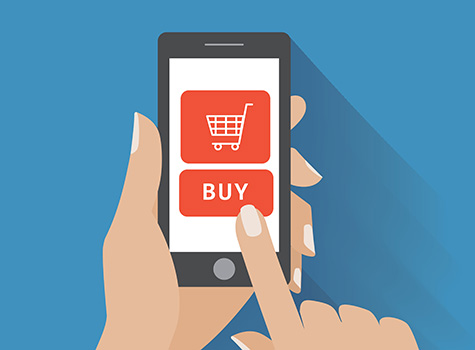New Google Buy Button Hopes To Be A Game Changer
Jul 27, 2015
Retail is as old as trading itself, and it is constantly evolving. So, is the imminent unveiling of Google's new buy button a significant moment in retail history? Possibly so.

With Google's new release of its buy button, it's worth asking: Is this a big deal? Will it change retail as we know it?
What's the Google Buy Button?
The new Google Buy Button, recently renamed Purchases on Google, gives Google Search users the option to buy things directly from search results without having to visit a separate website.
You see the search result, you click on the Google Buy Button, and the product is on its way to you.
It's rolling out now, initially for mobile only, but eventually for desktop as well.
What's motivating Google to do this? Google's chief business officer, Omid Kordestani, told the BBC that he wants to reduce "friction" for users so they buy more things online.
It makes sense. If you know you want to buy something, why have to click through to the seller's website and go through their shopping process? Why not just let Google handle it and avoid the extra time and extra clicks?
Not Exactly a New Idea, But Google Can Make Things Happen
Making it easier to buy things is not a new concept. Paypal, Apple Pay, Samsung Pay and other innovations are all chasing after the same thing.
But Google has some advantages over its competitors. VentureBeat reports that "Because of its much-used search engine, Google can capture people who want to shop mobile search results directly."
Pushback from the Market
Many are concerned that Google is disintermediating the market, cutting out the retailer from being able to interact with prospective customers.
Others are worried that Google is getting too powerful. After hearing about the Google Buy Button, one e-retailer commented on WebmasterWorld.com that:
"20 years from now, the saying will be "I've been surfing Google" instead of "surfing the web" because Google will have become the Internet, replacing all other websites. Funny how quickly "do no evil" turned into "be as evil as possible".
In the History of Retail, Will the Google Buy Button Matter Much?
Google is increasingly active in retail, but they are still a newcomer, relative to the entire history of retail.
Just how far back does the history of retail go?
Even in prehistoric times, believe it or not, there were peddlers who travelled long distances to trade their goods. Much more recently, the Greeks traded goods in the agora. At some point, brick-and-mortar stores emerged, making it much easier to buy what we need.
In 1852, the world's first department store opened and transformed the world of retail in a big way. Countless innovations -- from the cash register to the credit card -- made it easier for us to shop.
Today, of course, we do a lot of our shopping online. Amazon alone had sales of $90 billion last year. And, according to a study by Deloitte, digital devices will have influenced $2.2 trillion worth of U.S. retail sales by the end of this year. Wow.
Yet, while it might seem that we do a ton of shopping online, Google's Kordestani notes that we still spend nine of every ten retail shopping dollars offline.
So there's an opportunity for Google Buy Button to make retail history in a big way if it shifts all those non-digital retail shopping dollars over to the online retail world.
Time Will Tell
The reality is that the new Google Buy Button will only make history if people start using it en masse. If we stop going to Amazon and other e-commerce sites and just buy via Google Search, yes, absolutely, that will be a huge deal.
But Google's batting average isn't perfect.
Certainly Google Glasses isn't getting the uptake Google would have liked.
And not everything that seems cool gets traction in the marketplace.
Fifteen years ago, I got early access to a Timex watch that encoded my credit card info using an RFID-powered technology called Speedpass.
I could buy food from McDonalds and gas from Mobil incredibly quickly, just by tapping my watch against a point-of-sale display. Sounds inane, I'm sure, but it was pretty cool at the time.
As smart as it was, Speedpass never got to the mainstream.
In the months to come, we'll find out whether the Google Buy Button has more staying power -- possibly even enough to make a noteworthy, long-term impact on the history of retail.Our advice to retailers is to keep an eye on this one. It could be big, and you'll want to understand how you can take better advantage of it than your competitors.
Source: Gaebler Ventures